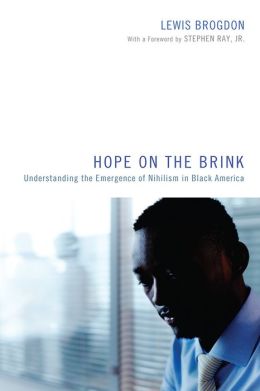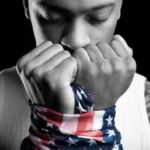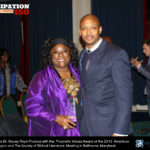KineticsLive.com
Interviews & Discussions
American Academy of Religion Conference
Renaissance Baltimore Harborplace Hotel
Maryland A 5th Floor
202 E Pratt St, Baltimore, MD 21202
November 25th, 2PM-5PM
|
Theme: Prophetic Rage: Reflecting on Prophetic Witness Today
Monday, November 25th, 2:00PM-3:00PM
 The session will feature an Interview with Dr. Johnny Bernard Hill on the release of Prophetic Rage: A Postcolonial Theology of Liberation, in dialogue with leading theologians and activists on the nature of prophetic Christian witness in today’s context. From “Stand Your Ground Laws” to the issue of “mass incarceration,” what does it mean to stand for truth in a post-civil rights, world of imperialism and violence? What does it mean to engage in the task of liberation theology in the age of Obama? Drawing on the history and legacy of black liberation theology and black religious studies across the Diaspora, as well as the broader global liberationist tradition, Jamye Wooten of Kineticscom.com will moderate an open forum on prophetic theology and witness, reflecting on Hill’s constructive theological treatment of liberation and prophetic action today. The session will feature an Interview with Dr. Johnny Bernard Hill on the release of Prophetic Rage: A Postcolonial Theology of Liberation, in dialogue with leading theologians and activists on the nature of prophetic Christian witness in today’s context. From “Stand Your Ground Laws” to the issue of “mass incarceration,” what does it mean to stand for truth in a post-civil rights, world of imperialism and violence? What does it mean to engage in the task of liberation theology in the age of Obama? Drawing on the history and legacy of black liberation theology and black religious studies across the Diaspora, as well as the broader global liberationist tradition, Jamye Wooten of Kineticscom.com will moderate an open forum on prophetic theology and witness, reflecting on Hill’s constructive theological treatment of liberation and prophetic action today.
|
|
MEET THE AUTHORS
3PM- 5PM
RENAISSANCE HOTEL
|
|
|
| Toward a Womanist Ethic of Incarnation: Black Bodies, the Black Church, and the Council of Chalcedon
|
|
Many critics have perceived a growing schism between the Black faith community and the wider African American community. The Black Church can be accused of a “benign neglect” of the very communities in which most of them were birthed and belong. In this book Lester Agyei McCorn conceptualizes an effective partnership to revitalize and mobilize the “church-in-community” by sharing a common story between congregants and residents, building consensus around common goals, and, thus, building common wealth. Utilizing the methods of liberation theology and church-based community development, this represents a praxis model that leads to reconciliation and restoration. This book asserts that a key for a renaissance can be found in the recovery of an Africentric communal ethos in order to reestablish a cultural and spiritual connection between the church and the community, a renewed Holy Common Ground. Buy Now
|
|
The Forgotten Prophet: Bishop Henry McNeal Turner and the African American Prophetic Tradition
 The Forgotten Prophet: Bishop Henry McNeal Turner and the African American Prophetic Tradition, by Andre E. Johnson, is a study of the prophetic rhetoric of 19th century African Methodist Episcopal Church bishop Henry McNeal Turner. By locating Turner within the African American prophetic tradition, Johnson examines how Bishop Turner adopted a prophetic persona. As one of America’s earliest black activists and social reformers, Bishop Turner made an indelible mark in American history and left behind an enduring social influence through his speeches, writings, and prophetic addresses. This text offers a definition of prophetic rhetoric and examines the existing genres of prophetic discourse, suggesting that there are other types of prophetic rhetorics, especially within the African American prophetic tradition. In examining these modes of discourses from 1866-1895, this study further examines how Turner’s rhetoric shifted over time. It examines how Turner found a voice to article not only his views and positions, but also in the prophetic tradition, the views of people he claimed to represent. The Forgotten Prophet is a significant contribution to the study of Bishop Turner and the African American prophetic tradition. Buy Now The Forgotten Prophet: Bishop Henry McNeal Turner and the African American Prophetic Tradition, by Andre E. Johnson, is a study of the prophetic rhetoric of 19th century African Methodist Episcopal Church bishop Henry McNeal Turner. By locating Turner within the African American prophetic tradition, Johnson examines how Bishop Turner adopted a prophetic persona. As one of America’s earliest black activists and social reformers, Bishop Turner made an indelible mark in American history and left behind an enduring social influence through his speeches, writings, and prophetic addresses. This text offers a definition of prophetic rhetoric and examines the existing genres of prophetic discourse, suggesting that there are other types of prophetic rhetorics, especially within the African American prophetic tradition. In examining these modes of discourses from 1866-1895, this study further examines how Turner’s rhetoric shifted over time. It examines how Turner found a voice to article not only his views and positions, but also in the prophetic tradition, the views of people he claimed to represent. The Forgotten Prophet is a significant contribution to the study of Bishop Turner and the African American prophetic tradition. Buy Now |
|
Hope on the Brink: Understanding the Emergence of Nihilism in Black America
 African Americans have always wrestled with hopelessness. Yet in the face of hopelessness, African Americans fought for hope that America can be a land of equality, opportunity, and justice. The fight for hope has been difficult and has taken a toll on African Americans. Today the signs of hopelessness abound in black communities across the nation as an increasing number of leaders express concern about a pervasive problem that they could not identify. Beyond the continuing injustices and inequities linked to systemic racism, they recognize a growing internal apathy in African Americans. This internal apathy is nihilism, the embrace of nothingness, meaninglessness, and internalized oppression. Nihilism has been slowly emerging since the 1980s and is the reason there is an increasing number of blacks who turn to defeating and destructive behaviors that only worsen their plight. In nihilism’s wake, leaders and communities are left trying to help people who have turned on themselves and abandoned hope that things can get better. The first step toward hope requires an understanding of hopelessness. Only then can we step into a world that pushes people to the brink and hope to make a difference. Hope on the Brink offers an exploration into this hopelessness. Buy Now African Americans have always wrestled with hopelessness. Yet in the face of hopelessness, African Americans fought for hope that America can be a land of equality, opportunity, and justice. The fight for hope has been difficult and has taken a toll on African Americans. Today the signs of hopelessness abound in black communities across the nation as an increasing number of leaders express concern about a pervasive problem that they could not identify. Beyond the continuing injustices and inequities linked to systemic racism, they recognize a growing internal apathy in African Americans. This internal apathy is nihilism, the embrace of nothingness, meaninglessness, and internalized oppression. Nihilism has been slowly emerging since the 1980s and is the reason there is an increasing number of blacks who turn to defeating and destructive behaviors that only worsen their plight. In nihilism’s wake, leaders and communities are left trying to help people who have turned on themselves and abandoned hope that things can get better. The first step toward hope requires an understanding of hopelessness. Only then can we step into a world that pushes people to the brink and hope to make a difference. Hope on the Brink offers an exploration into this hopelessness. Buy Now
|






